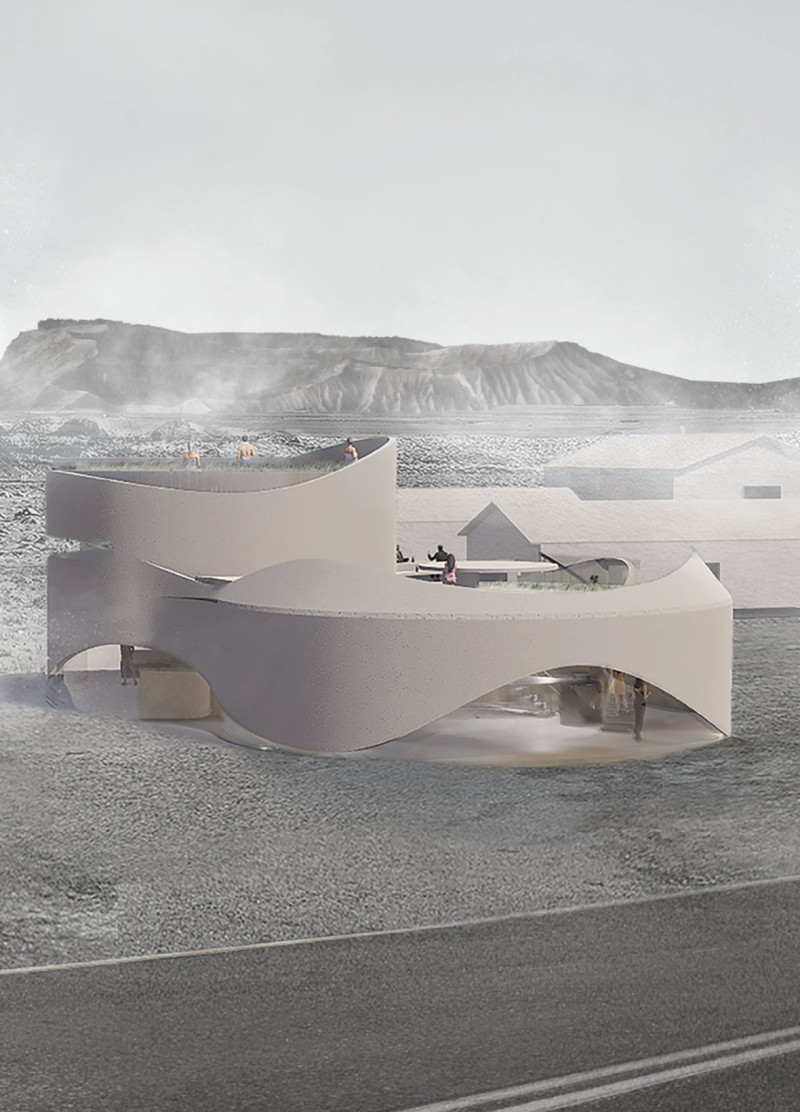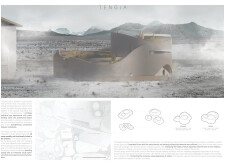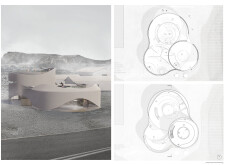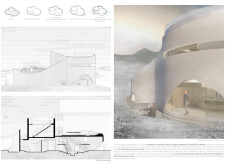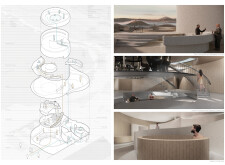5 key facts about this project
### Project Overview
The Beer Spa, named "Tengja," is located adjacent to the Sel Hotel in the Lake Mývatn area of Iceland. This facility is designed to create a communal space that merges wellness experiences with public traditions surrounding locally brewed beer. The intent is to foster interactions among visitors while enhancing their connection to the unique natural landscape of the region.
### Spatial Strategy
The design emphasizes a harmonious integration with the volcanic topography, drawing inspiration from the natural contours of the landscape and the forms of volcanic craters. Circular geometries facilitate the creation of interconnected spaces, promoting not just physical relaxation but also community engagement. Each area within the spa serves multiple functions, allowing for adaptability and growth in response to future needs. The internal organization encourages graceful transitions, optimizing visitor flow and enhancing the overall experience.
### Materiality and Sustainability
Material selection plays a critical role in the design, reflecting the regional character and enhancing functionality. Key materials include durable concrete for the organic exterior shapes, warm wood for internal spaces to create a comfortable atmosphere, and thatched grass on roof terraces to echo the natural environment and support sustainability. The integration of sustainably sourced materials and energy-efficient systems underscores a commitment to eco-conscious design, aligning the facility with Iceland's environmental ethos. Large window openings and terraces facilitate views of the surrounding volcanic landscape, reinforcing the relationship between the indoor and outdoor environments while enhancing the therapeutic qualities of the spa experience.


